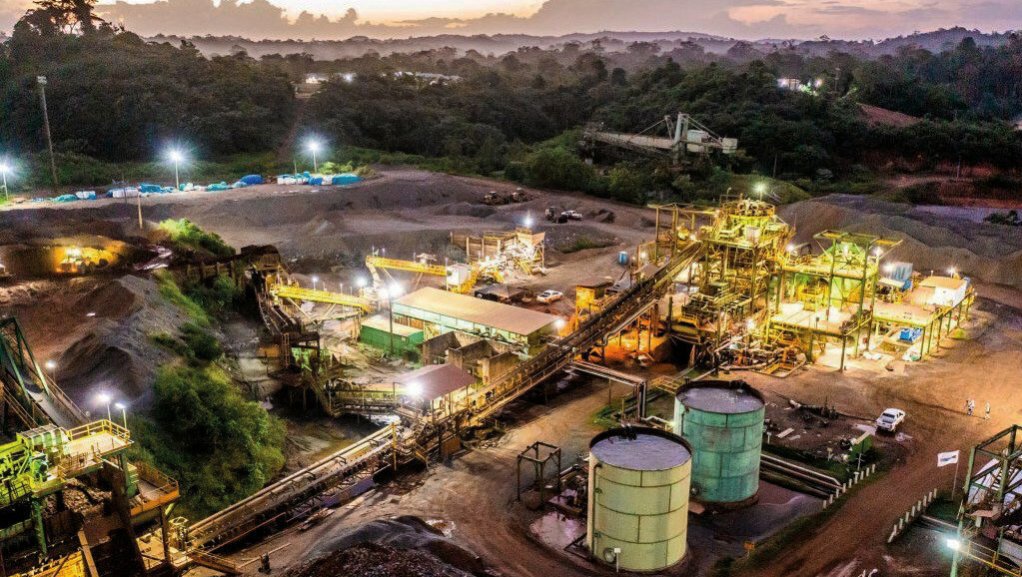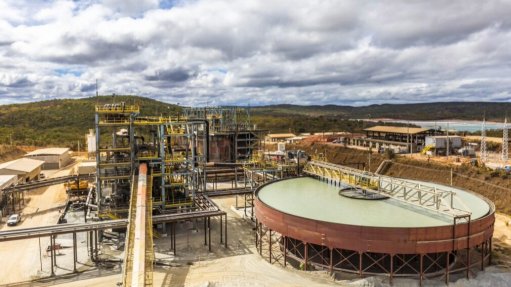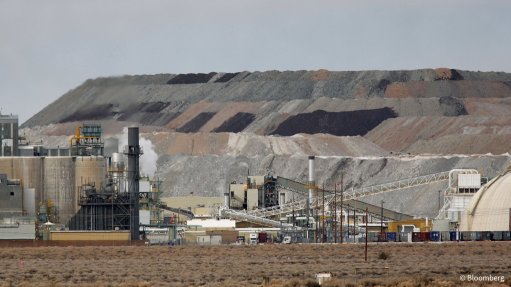ICMM suggests tax reforms to drive greater investment to meet metals, minerals demand
Mining organisation ICMM says its members paid corporate income tax (CIT) and royalties of $54.2-billion last year, employed 561 800 people and paid $39-billion in wages.
About $187-billion was paid to suppliers, while community and social investments totalled $1.4-billion.
Since 2013, ICMM members have paid $325-billion in CIT and royalties, compared with total adjusted profits of $888-billion over the same period.
Therefore, $36 out of every $100 in profit earned by ICMM members is being paid to governments.
ICMM members agree that transparently disclosing tax and royalty payments, employee counts, payments to suppliers and community investment figures provides important context for understanding the economic contribution that mining makes.
It also helps to hold governments to account for how revenues are used.
ICMM says more investment in mining is needed for the energy transition and to optimise the benefits of mining for host communities.
It estimates that the required investment to meet demand for the minerals and metals needed for the global energy transition will be between $360-billion and $450-billion by 2030.
“Investment in mineral-rich countries will be critical, supported by stable tax environments that help countries unlock their economic potential and drive wider development,” the ICMM states.
The organisation suggests in a new briefing paper published on June 5 various tax policy principles and six tax design elements for tax systems that can encourage sustainable mining investment, as well as provide a foundation for constructive dialogue between the mining industry and governments.
The paper, titled ‘Unlocking prosperity: tax principles for sustainable mining’, unpacks how using different tax levers in Latin America, Africa, Canada, the US and Australia can foster productivity and a more effective investment environment.
The ICMM emphasises that there is no one-size-fits-all approach to tax policy and the report does not prescribe specific tax regimes of a reform agenda, but rather an analysis of different leading practice tax policy design elements and the possible social and economic gains and costs of applying them.
ICMM president and CEO Rohitesh Dhawan says that, at a time when public finances globally are stretched thin, the mining industry continues to make vital contributions to host countries’ national wealth.
He adds that ICMM members are often among the biggest employers, largest purchasers from local businesses, and the most significant taxpayers where they operate, all while producing the materials that make modern life and the energy transition possible.
These contributions to host countries are made possible by investments in projects that are long-term, involve significant upfront capital investment, and often face several unforeseen risks.
“For these reasons, it is vital that governments design fiscal regimes that encourage responsible mining investments for the common good, and this paper provides important perspectives in that regard,” Dhawan states.
The briefing paper can be accessed here: https://www.icmm.com/en-gb/research/social-performance/2024/unlocking-prosperity.
Consultancy Ernst & Young global mining and metals leader Paul Mitchell says the analysis in the report is timely as the mining and metals industry navigates a complex landscape of challenges and opportunities.
“The race for minerals and metals required for the energy transition is accelerating, and so too are a range of government incentives and restrictions. It is critical that mining companies forge strong relationships with governments – together they can be a powerful force for change,” he states.
He says the ICMM tax policy briefing can foster a knowledgeable and productive discussion on developing tax systems related to mineral resources and extraction activities. “Getting the balance right for mutually beneficial outcomes has never been more critical,” he concludes.
Article Enquiry
Email Article
Save Article
Feedback
To advertise email advertising@creamermedia.co.za or click here
Press Office
Announcements
What's On
Subscribe to improve your user experience...
Option 1 (equivalent of R125 a month):
Receive a weekly copy of Creamer Media's Engineering News & Mining Weekly magazine
(print copy for those in South Africa and e-magazine for those outside of South Africa)
Receive daily email newsletters
Access to full search results
Access archive of magazine back copies
Access to Projects in Progress
Access to ONE Research Report of your choice in PDF format
Option 2 (equivalent of R375 a month):
All benefits from Option 1
PLUS
Access to Creamer Media's Research Channel Africa for ALL Research Reports, in PDF format, on various industrial and mining sectors
including Electricity; Water; Energy Transition; Hydrogen; Roads, Rail and Ports; Coal; Gold; Platinum; Battery Metals; etc.
Already a subscriber?
Forgotten your password?
Receive weekly copy of Creamer Media's Engineering News & Mining Weekly magazine (print copy for those in South Africa and e-magazine for those outside of South Africa)
➕
Recieve daily email newsletters
➕
Access to full search results
➕
Access archive of magazine back copies
➕
Access to Projects in Progress
➕
Access to ONE Research Report of your choice in PDF format
RESEARCH CHANNEL AFRICA
R4500 (equivalent of R375 a month)
SUBSCRIBEAll benefits from Option 1
➕
Access to Creamer Media's Research Channel Africa for ALL Research Reports on various industrial and mining sectors, in PDF format, including on:
Electricity
➕
Water
➕
Energy Transition
➕
Hydrogen
➕
Roads, Rail and Ports
➕
Coal
➕
Gold
➕
Platinum
➕
Battery Metals
➕
etc.
Receive all benefits from Option 1 or Option 2 delivered to numerous people at your company
➕
Multiple User names and Passwords for simultaneous log-ins
➕
Intranet integration access to all in your organisation





















